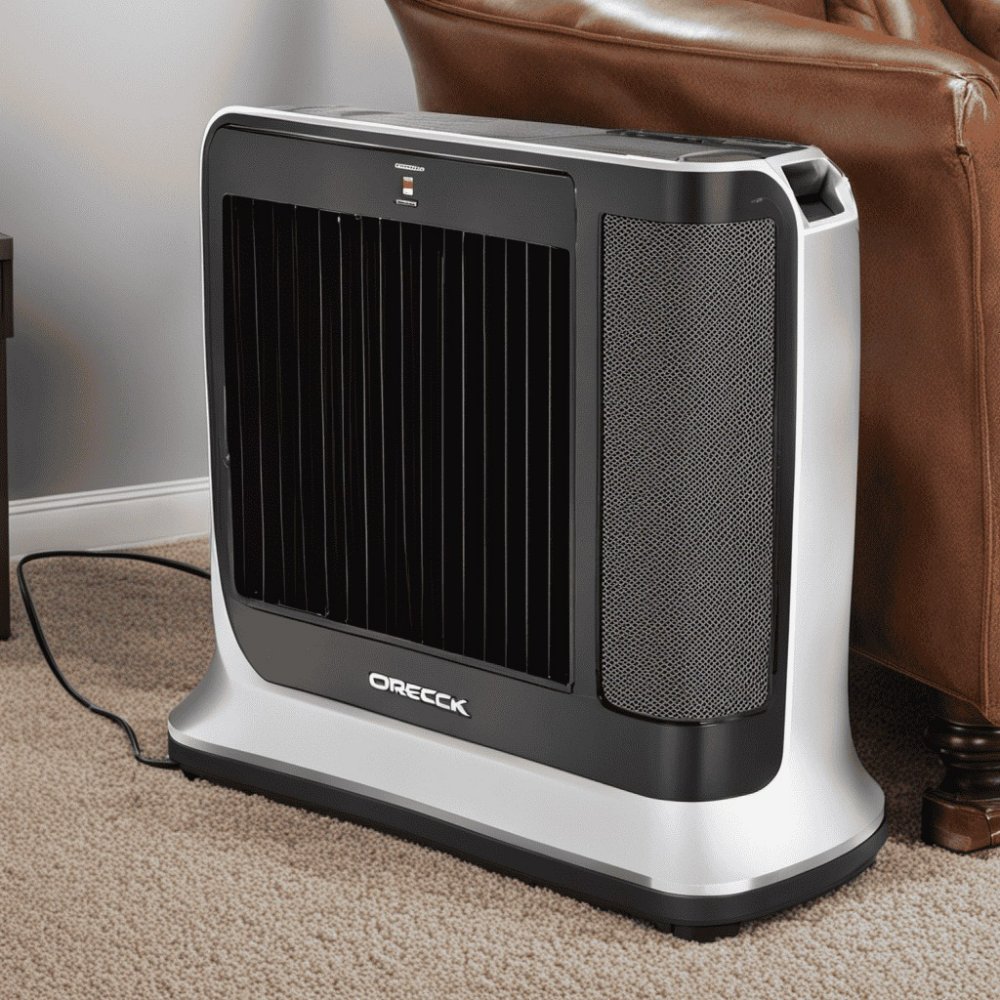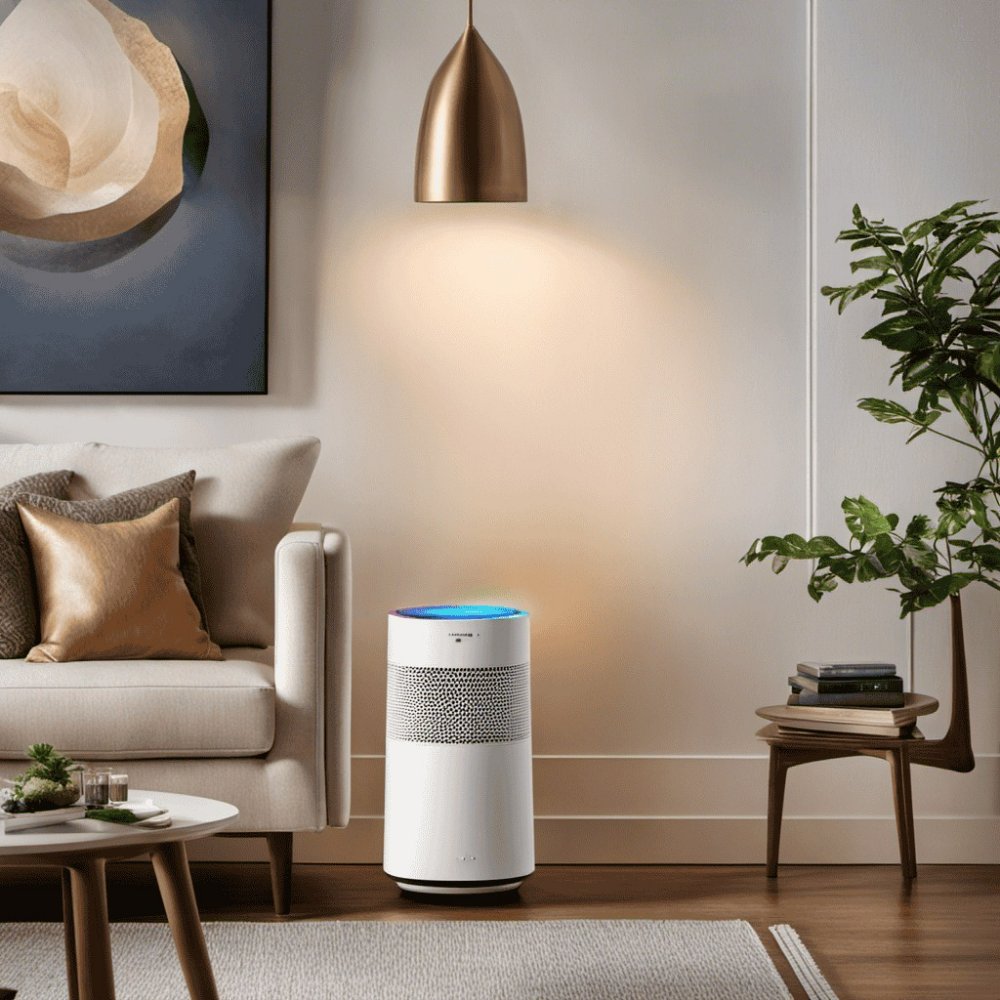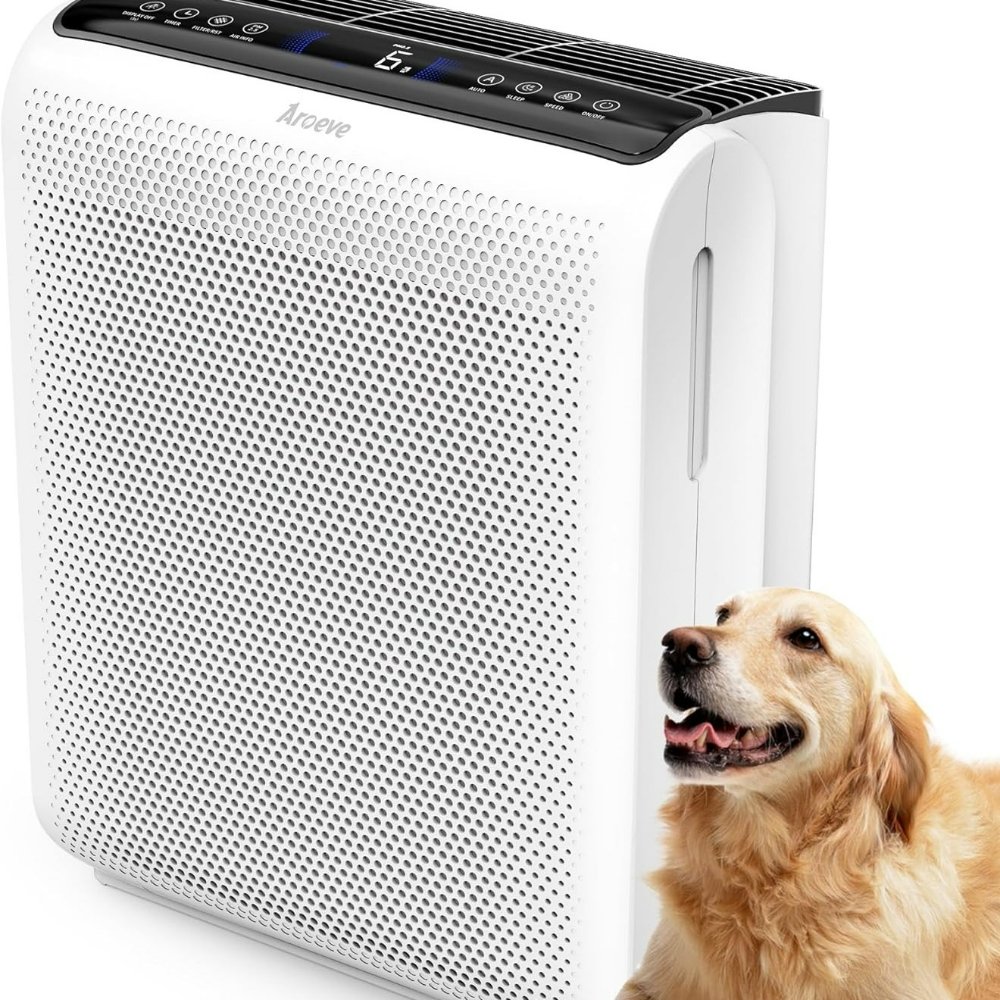The Function and Purpose of Air Purifiers
Air purifiers serve one main goal: they clean the air. The function and purpose of air purifiers transcend simple air cleaning. They serve as instrumental devices in filtering airborne particles, reducing allergens, improving respiratory health, and promoting overall well-being. Whether used for alleviating allergies, enhancing sleep quality, or simply ensuring a pleasant indoor atmosphere, air purifiers offer substantial benefits invaluable to maintaining a healthy living environment. The result is cleaner air that’s easier to breathe and healthier for you.
How Air Purifiers Work
Here’s how air purifiers do their job:
- They pull in dirty air from your surroundings.
- The air goes through filters inside the purifier.
- These filters catch and hold onto harmful particles.
- Clean air then flows back out into your room.
Air purifiers don’t touch the moisture in the air. Their focus is purely on removing contaminants.
Primary Objectives of Air Purifiers
An air purifier’s mission is clear: remove bad stuff from the air. This includes things like:
- Dust: Dust particles accumulate over time from various sources, such as skin cells, fabrics, and external contamination. Air purifiers use HEPA (High-Efficiency Particulate Air) filters to trap these fine particles, significantly reducing the dust floating in the air.
- Pollen: Especially relevant during allergy seasons, pollen from trees, flowers, and grasses can trigger allergic reactions. Air purifiers can intercept visible and microscopic pollen, providing relief for allergy sufferers.
- Mold Spores: Mold growth in damp areas can release spores into the air, exacerbating respiratory issues. Air purifiers equipped with specialized filters can capture these spores, helping to maintain a mold-free environment.
They make the air inside cleaner and safer for everyone, especially for people who have allergies or asthma.

Common Misconceptions About Air Purifiers and Dry Air
Does an air purifier dry out the air? Many think air purifiers make the air dry. They believe these devices take moisture away. But this isn’t what happens. Let’s set the record straight about air purifiers and humidity.
Origins of the Dry Air Myth
Where did this idea come from? Some noticed drier air when using purifiers. Others just heard it from someone. Misinformation spreads fast, causing false beliefs to grow.
Clarifying How Air Purifiers Affect Indoor Humidity
So, do purifiers dry the air? No, they don’t. They clean the air, removing dust and allergens. Purifiers don’t have parts that take moisture out of the air. Your air stays at the same humidity level when you use one.
Types of Air Purification Technology
When we talk about cleaning air, several technologies come to mind. Each type of technology targets specific kinds of air problems. Knowing these can help you choose the right air purifier for your home.
HEPA Filters and Air Quality
HEPA filters trap tiny particles. They catch things like dust, pollen, and pet dander. This makes the air fresh and stops allergies from kicking in. For anyone with asthma, a HEPA purifier is a good choice.
Activated Carbon Filters and Gaseous Contaminants
These filters are different. They don’t stop particles. Instead, they grab gas and smells. If your house has tobacco smoke or cooking odors, carbon filters can help clear that up.
Ionizers and UV Technology in Air Purification
Other purifiers use ionizers or UV lights. Ionizers drop charged ions into the air. These ions latch onto pollutants, and they fall out of the air. UV purifiers zap germs with light. This kills viruses and bacteria. Using these can keep your home germ-free.

The Truth About Air Purifiers, Humidity, and Home Comfort
Why Air Purifiers Do Not Remove Moisture
Air purifiers are designed to clean, not dry, your air. Their filters catch dirt and dust but don’t affect the air’s moisture. While purifiers move air around, they do not have parts to remove water vapor. This means the air in your room stays at the same humidity level, even with a purifier running.
Factors That Influence Humidity Levels in Your Home
Many things can change the moisture in your air, not just air purifiers. Cold weather can make air drier. Heating systems warm the air, which can lower moisture if extra isn’t added. Poorly sealed homes let dry air in and can reduce indoor moisture. Also, not enough fresh air from outside can lower your home’s humidity levels. If your air feels dry, it might be time to check these factors instead of blaming your air purifier.
Managing Indoor Humidity Levels
To keep your home comfortable, it’s key to manage humidity levels. While air purifiers don’t remove moisture, they can make air feel drier. Here’s how to maintain comfort.
Tips for Maintaining Comfort with Air Purifiers
Here are easy steps to keep air comfortable while using air purifiers:
- Check Humidity: Use a hygrometer to watch your indoor humidity. Keep it between 30-50%.
- Adjust Placement: Don’t put air purifiers too close. Keep them away from where you sit.
- Right Size Matters: Use a purifier that fits your room size. Too big can increase dry feeling.
- Control Fan Speed: Lower it if the air feels too dry. It will slow down air movement.
- Combine with Plants: Indoor plants can add moisture. They make air feel less dry.
Using Humidifiers and Dehumidifiers Alongside Air Purifiers
Sometimes, you need extra help to control moisture. Here’s what to do:
- Add a Humidifier: If air is too dry, a humidifier adds moisture. It can help balance.
- Use a Dehumidifier: In damp areas, a dehumidifier can lower humidity. It prevents mold.
- Monitor and Adjust: Change settings on these devices as needed. It keeps humidity right.
By keeping these tips in mind, you can enjoy cleaner air without discomfort from dryness.

Choosing the Right Air Purifier for Your Home
Selecting the right air purifier is key to clean air and comfort. Size and where you put it matter most. Get a size that fits your space for best results.
Considerations for Purifier Sizing and Placement
Your space size should guide your air purifier choice. Too big may feel dry. Too small won’t clean well. Place your purifier in a spot with free air flow. Avoid corners and tight spots. Keep purifiers away from where you relax or sleep.
Recommendations for Air Purifier Maintenance
Keep your air purifier running well with regular care. Clean or replace filters as the maker suggests. Wipe the outside often to stop dust buildup. Check the manual for specific model advice. This keeps your air clean and your device long-lasting.
The Impacts of Air Quality and Humidity on Health
Good air quality and the right humidity can improve your health. This part of the blog looks at those benefits.
Health Benefits of Clean Air
Clean air is key for good health. Here’s why:
- It cuts the chance of allergies and asthma.
- It reduces harmful pollutants that can make you sick.
- It helps everyone breathe easier and feel better.
Having an air purifier at home can help make the air you breathe clean. But remember, it doesn’t change the moisture in the air. So the feeling of dryness won’t come from the purifier.
Importance of Balanced Indoor Humidity
Balanced humidity helps your health and home. Keep these points in mind:
- The right humidity can stop viruses and allergies.
- It keeps your skin and throat from feeling dry.
- It helps avoid damage to your home from too much or too little moisture.
Among other things, keeping your indoor air at the right humidity is a must. A hygrometer can help track humidity levels. Aim for a range between 30% and 50%. Using a humidifier or dehumidifier along with your air purifier can keep things balanced.